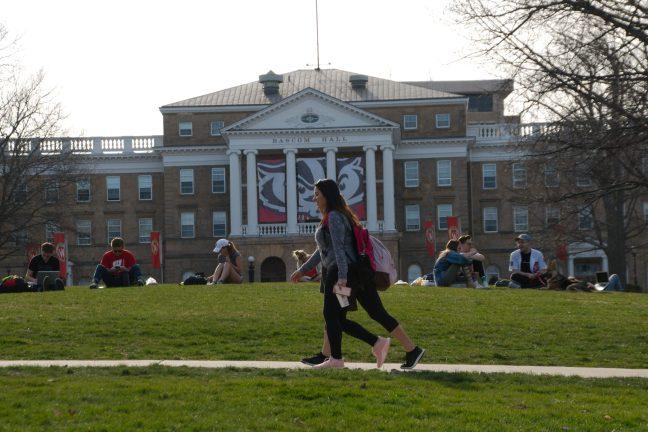It goes without saying this past academic year has been unlike any other. Since March 2020, when University of Wisconsin students left for spring break, undergraduate life has fundamentally changed with remote classes and a halt to on-campus activities.
But UW administrators’ responses have changed rather disproportionately in regards to the ongoing pandemic and its impact on students’ wellbeing.
Though UW offered student disruption grading and sympathy from instructors and administrators last spring, that academic support and an understanding of the toll remote learning, a lack of social interaction and widespread burnout have taken on students has disappeared, despite the pandemic becoming worse.
And on top of all that, undergraduates are still paying the same tuition prices.
Instead, this semester campus support came as a Mental Health and Wellbeing Summit, followed by a week of care denoted by the catchy #TakeCareUW, without a spring break, disruption grading, tuition decreases or any change in academic requirements to mitigate the pandemic’s impact on students. And, while UW administrators know time off from work is essential for supporting emotional wellbeing, this only applies to UW employees, not undergrads.
While mental health support is undoubtedly an important component of campus efforts to improve student wellbeing, the issue here is not that students do not know how to take care of themselves — it’s that they simply do not have the time to do so. The university must make more widespread policy changes to complement the current mental health support on campus to ensure professors and administrators are actually continuing to academically support students.
A sophomore who asked to remain anonymous reported that one of their classes had an essay and a midterm scheduled a day apart, and while the professor sent an email “to acknowledge the upcoming stressful circumstances and cancel a couple of future class meetings” for two weeks later, the professor “did nothing to help us students in the moment.”
Another student wishing to remain anonymous described contradictory class experiences, with one professor promoting a “pandemic pedagogy” to emphasize an understanding that students have priorities outside of class and are encouraged to ask for extensions or accommodations, while the same student’s Population Health professor holds Honorlocked exams without providing any resources for places on campus where students can take these exams without distractions.
To relieve pandemic-based stress, UW should reinstate Spring 2020 Disruption grading option
Similarly, when several students were asked how professors can support them amid the pandemic and the lack of breaks this semester, general consensus was a decrease in the workload and an understanding that students have other obligations outside of class — including taking the time for self-care.
We must also consider that in previous years of in-person instruction, those feeling sick would not be expected to attend class. Yet with entirely virtual schedules, students are logging on from quarantines while suffering from COVID-19 symptoms.
It’s also necessary to emphasize that for international students, managing an academic workload remotely offers additional hurdles, where students abroad must manage time differences to attend class due to mandatory attendance policies set by certain professors. Without a scheduled break during the semester and intense studying at night, international students face a tremendous amount of stress.
Penalizing students for not attending class can negatively affect mental health
A recent Atlantic article on burnout emphasizes that for employees, only the boss can “cure” such an ailment. Replace the employee-employer relationship with students and professors, or students and campus administrators, and the article is painfully resonant. Obviously UW students are burned out — otherwise we would not have had a Mental Health and Wellbeing Summit in the first place.
But while we might think burnout is the result of something the “burnee” is doing, which can be alleviated by offering self-care strategies or tips, a student needs to feel empowered to actually take the time to practice self-care, which is a herculean task when faced with a full workload and literally one day off the entire semester.
This is why a summit is not enough. Students need a break and a clear indication from professors that doing so is acceptable and encouraged. Sympathy statements from UW professors and administrators are inadequate responses to students’ current mental health struggles.
It’s one thing for a professor to admit course assignments are stressful, but it’s another to actually extend deadlines or cut back on the workload altogether. Just as administrators encourage students to #TakeCare, the current academic climate on the administrative and classroom levels must reflect such a sentiment.
Anne Isman ([email protected]) is a sophomore majoring in economics and international studies.





















